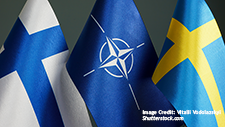Quad 4.0? To Securitize or Not to Securitize

Mahima Duggal
From an ad-hoc body that emerged to coordinate a response to a devastating tsunami in 2004, the Quad has grown into a critical and formalized framework with a practical agenda. As the grouping has become an important and (in all likelihood) a permanent fixture in the Indo-Pacific region, debates on its nature and character, and where its priorities must lie have also grown. This paper addresses a key point of contention regarding the Quad’s future: Whether the grouping should move toward a rigid security treaty alliance by enhancing its security focus, or whether it should continue on its present trajectory and focus on becoming a public good provider in the region. This paper reflects on the Quad’s evolution thus far and aims to make a case as to why the Quad must cautiously stay removed from a reverting to its initial security focus and instead focus on achieving its vision of becoming a force for good in the region. Championing public goods can in fact be a major advantage for the Quad, as it not only can help it gain greater acceptance in the Indo-Pacific, but also help strategically balance against China’s expanding influence and geopolitical footprint in the region.
Related Publications
-
ISDP Annual Report 2023
ISDP’s Annual Report for the year 2023. We look back on 2023, a year in which tensions and conflicts captured the strategic space in ISDP’s focus areas, making headlines around […]
-
South Korea’s Indo-Pacific Strategy, Atmanirbhar Bharat, and the IPEF: Convergence and Commonality
For some time now, the existing multilateral networks such as those of the United Nations (UN) system have been largely ineffective in providing good global governance and helping create resilience, […]
-
Enlarging Indo-Pacific into the Orbit of Euro-Atlantic: Implications for India
Abstract: Following the release of the United States’ Indo-Pacific strategy that called for building bridges between the Indo-Pacific and the Euro-Atlantic, the idea of interlinking the two geopolitical theaters has […]
-
Not Drawing a Parallel. Ukraine and Taiwan: An Indian Perspective
Russia’s war against Ukraine has not only had economic, diplomatic, and geopolitical repercussions, but also exaggerated the fear of accelerated conflicts in the Indo-Pacific, a region with several unresolved conflicts […]
-
Sweden Joins NATO: Implications for the Indo-Pacific
On March 7, almost two years after it first submitted its application and a year after Finland joined the North Atlantic Treaty Organization (NATO), Sweden officially became part of NATO’s […]




